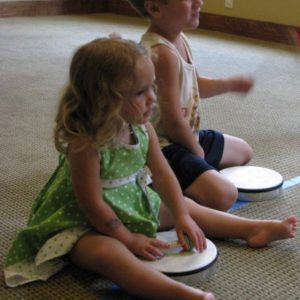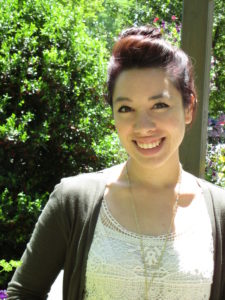 As a music therapist, I am frequently asked “What is music therapy?” A simple explanation I have learned is: music therapy is the process of using music to achieve non-musical goals. Non-musical goals are based on the needs of the client. For example, if I have a client with Autism who has difficulty communicating his feelings, one of my non-musical goals could involve increasing emotional expression. Now you might be wondering, “How can you use music to help increase emotional expression?” And that is a great question! Instead of explaining how to specifically increase emotional expression, though, I will explain how we help achieve non-musical goals, in general. There are 4 different musical experiences that music therapists can use to help their clients achieve their goals.
As a music therapist, I am frequently asked “What is music therapy?” A simple explanation I have learned is: music therapy is the process of using music to achieve non-musical goals. Non-musical goals are based on the needs of the client. For example, if I have a client with Autism who has difficulty communicating his feelings, one of my non-musical goals could involve increasing emotional expression. Now you might be wondering, “How can you use music to help increase emotional expression?” And that is a great question! Instead of explaining how to specifically increase emotional expression, though, I will explain how we help achieve non-musical goals, in general. There are 4 different musical experiences that music therapists can use to help their clients achieve their goals.
1. Improvisation: Improvisation is music that is created without prior preparation. This experience allows the client to be completely in the moment because the music they are making has never been played before, and will probably never be played again. What I mean by in the moment is that the client is able to be aware of and respond to external cues (from their environment, the people around them, etc.) and internal cues (their own emotions, thoughts, etc.). Since their response the external and internal cues is in the form of music, it also allows for the individual to be expressive in a different way than they are probably accustomed to. Improvisation can also allow the therapist to musically respond to the client, which helps validate the expression of the client.
2. Creation/Composition: Creation is different from improvisation in that it is more structured. Creation and composing are mostly song writing, and can be a wonderful mode of expression. Song writing is less spontaneous in nature than improvisation, and the end result is meant to be replicable. Lyrics can be more easily incorporated into song writing than improvisation, as well.
3. Re-creation: Re-creation is simply playing or singing a song that has already been written. Karaoke is a popular form of re-creation. One way that music therapists can use re-creation is in the form of a call-and-response. A call-and-response is a two part interaction/song where the second phrase is a direct response to the first. This response can be an echo, or a separate phrase altogether.
An example of this could be:
Therapist sings: “Old McDonald had a farm…” Client sings: “E-I-E-I-Oh!”
Another example is:
Therapist sings: “I say ‘good morning’ and ‘how are you today?’ When I say ‘good morning,’ this is what you say: ‘Good morning!’” Client sings: “Good morning!”
Call-and-responses can be helpful in developing communication and also in teaching appropriate social responses and interactions. They are not limited to singing, though, and can be played instrumentally as well.
4. Receptive: This is the most common form of musical experience that we encounter on a daily basis. Receptive music is mostly listening to music. Music and meditation is a way in which we can use receptive music in a therapeutic setting. In music and meditation, the music therapist chooses specific music that helps create a safe and relaxing environment, while the therapist verbally guides the client through a meditative process. Another way music therapists use receptive music is through lyric analysis, where the client listens to a song and then discusses the lyrics and their relevance to his/her own life. These are very brief descriptions of the four musical experiences that are used by music therapists. Just like the non-musical goals are specific to the needs of the client, so is the way in which music therapists use the musical experiences to help the client achieve their goals.
Contributed by Sarah Seo, MT-BC, sarah@metromusicmakers.com
Sarah majored in Music Therapy at Georgia College and State University in Milledgeville, GA, where she graduated Summa Cum Laude. After receiving her degree, Sarah joined the teaching staff at Metro Music Makers. Her flexibility to teach voice, piano and guitar has made her a favorite among our students. Sarah is also a member of our Music Therapy Team.
